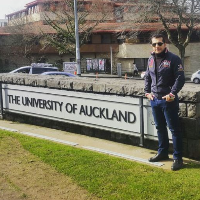Clarifying The Indicators of City Development Strategy with Approach Urban Good Governance (Case Study: Mallard City)
S trategic planning, as the las t s tage of the development of urban planning, s trives to create consensus among citizens regarding urban development adaptability and participative techniques. Urban residents are recognized as s takeholders in the planning process and will take part in its final formulation. In addition to discussing issues like reducing poverty, city planning, and environmental problems, the CDS prioritizes increasing economic competitiveness. This s tudy measured good urban governance, livability, bankability, and competitiveness indicators for Mallard. A descriptive-analytical approach has been used to accomplish this. The mos t crucial feature of this s trategy is that it views cities as the engine of economic growth and directly affects governance, local economic growth, and poverty alleviation.The purpose of this article is to review and evaluate the components of the city development s trategy in Mallard. The data were processed using SPSS and AMOS software, one-sample T-tes ts, and other tools. The results show that while the components of bankability (2.20) and competitiveness (2.42) are in a somewhat better position than the other components, the components of livability (1.70) and good urban governance (18.82) are in a much poorer position.
-
Livability analysis of area 6 of Tehran metropoliswith a future research approach
*, Hojjat Mirzazadeh, Ramin Mohamadi
Geographical Urban Planning Research, -
Assessment of Adaptability of the Urban Village Model in Annexed Zones of Sari City
Sahar Mahdavi, *
Journal of Physical Development Planning, -
An analysis of urban agriculture and the possibility of its implementation in the Tehran metropolitan
*, Moslem Babajani
Journal of Geography and Human Relations, -
Measuring the effects of the sense of place on the level of social resilience in new towns (Case study: Mehestan new town)
*, Fataneh Pirdadeh Biranvand, Mahsa Shokri, Sajjad Mohammadzahraei
Journal of Geography and Human Relations,


